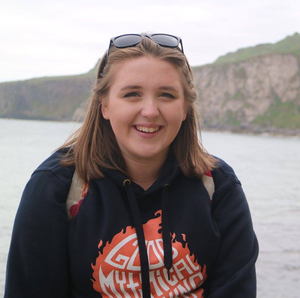Factors influencing UK Climate
Description

|
Created by Antonia Blankenberg
over 7 years ago
|
|
Resource summary
Page 1
Past UK Climate:
The UK's climate has changed dramatically over the past 1000 years. In the medieval period (800-1300AD) the UK experienced a warm period with temperatures approximately one degree warmer than at present. This was found due to agricultural records boasting high productivity. During 1300 and 1900AD, the UK was faced with the "Little Ice Age". Temperatures were cooler and ice fairs were held. The Thames froze up to 20 times during this period. Areas of Scotland experienced a prolonged winter and high levels of snow.
Page 2
Climate in the UK today:
The UK has a temperate oceanic climate, similar to many areas of Northern Europe. Today, the UK shows characteristics of a maritime climate. The annual temperature range is small with no extremes; average temperatures range from 4 degrees to 15 degrees. Precipitation is year round despite the seasonality present. The amount of precipitation varies across the UK with London receiving approximately 550mm per year and Fort William receiving approximately 1800mm per year. Northern Ireland, Wales and western parts of England and Scotland, being closest to the Atlantic Ocean, are generally the mildest, wettest and windiest regions of the UK, and temperature ranges here are seldom extreme. The climate and weather events of the UK are controlled by its latitude, air masses, ocean currents, and distance from the sea.
Page 3
Factors influencing UK climate:
The prevailing wind of the UK is from the southwest, this brings rainfall from the Atlantic ocean to the UK. The latitude of the UK determines the amount of solar insulation received from the sun. This also affects the length of the day. In Winter, when the UK is tilted away from the sun, days are shorter and less solar insulation is received, resulting in lower temperatures. The UK is under the influence of five different air masses, each bringing different conditions. The polar maritime air mass brings cool air with showers. The arctic maritime air mass brings cool weather in the summer, snow in the winter, and very cold conditions in the winter and spring. The polar continental air mass brings cold and dry conditions in the winter, and warm and dry conditions in the summer with the possibility of thunderstorms. The tropical continental air mass brings dry settled weather with high summer temperatures. The tropical maritime air mass brings wet, warm, and windy weather. The distance which people live from the sea affects the weather conditions they experience. Settlements closer to the sea will experience less of a variation in temperature. This is because the sea heats and cools much slower than land. The North Atlantic Drift (Ocean current) brings warmer conditions to the UK, particularly the Western coast.
Page 4
Extreme Weather Hazards in the UK:
Storm Events The UK is regularly hit by depressions which bring heavy rain and windy conditions. Storms cause damage to the west coast in particular due to its proximity to the Atlantic. Storms can cause extreme damage to infrastructure and can lead to deaths, with coastal flooding being a threat in many cases. The UK can also experience tornadoes, triggered by strong heating of the ground. Flooding There are four different flood hazards that face the UK, mostly causes by high levels of rainfall or strong coastal waves. Flooding can sometimes trigger landslides, which can cause huge amounts of damage. Coastal flooding is caused by storm surges into a river's estuary. River flash flooding is the result of high levels of rainfall and is particularly likely on steeper slopes. Slow-onset river flooding occurs when a long period of rainfall saturates the soil in the river catchment so that it can't hold any more water. This leads to the banks of the river collapsing. Surface water flooding is caused by high levels of rainfall collecting in depressions or hollows where homes have been built and is the only form of flooding that can happen separated from another water source. Drought Events: Drought occurs when there is a long period without rainfall. The definition of a drought in the UK is 15 consecutive days with less than 0.2mm of rain on any one day. The longest UK drought on record was 18 months, occurring in 1975/1976. Droughts are often accompanied by high temperatures. Extremes of Cold Weather: Cold conditions occur if depressions don't pass over the UK in winter. Frost can damage crops and livestock. Freezing conditions can cause damage to infrastructure and can bring business to a halt. Blizzard conditions have a huge impact on the airline industry in particular.
Page 5
Responding to Weather Hazards:
Drought: Restrictions on water usage can be put in place, including hosepipe bans and the cutting off of household water. Water meters can be installed and old water pipes can be repaired, particularly in areas such as London, which have very old water pipe systems. Storms: There have been improvements in predicting and monitoring storm events. Severe weather warnings can be put in place before an event. Smartphones allow users to see these warnings when away from home. Flooding: River banks can be reinforced to protect against flooding. Ground moisture levels can be monitored to predict river flooding. New housing being built in floodplains is subject to higher insurance costs to deter development in vulnerable areas. Cold Weather: Conditions can be predicted and warnings set in place. Awareness is raised surrounding the vulnerability of elderly people in cold weather conditions.
Want to create your own Notes for free with GoConqr? Learn more.
